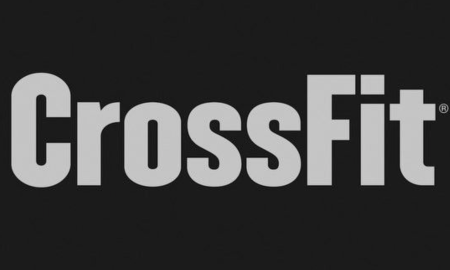
Have you ever trusted a medication to alleviate one ailment, only to find it implicated in an entirely unforeseen health challenge? These issues have led to legal recourse, which raises several other questions.
That’s precisely what’s happening with Tepezza. The Tepezza lawsuit isn’t just another legal saga; it’s the answers many seek through courtrooms, challenging the essence of pharmaceutical advancements.
In this blog, we’ll uncover the intricacies behind hearing loss claims linked to Tepezza, a medication initially celebrated for treating thyroid eye disease.
Background on Tepezza and Its Medical Uses
Manufactured by Horizon Therapeutics, Tepezza garnered approval in 2020, offering hope to individuals grappling with the often debilitating symptoms of this ocular condition. The drug, administered through intravenous infusion, targets a specific immune system pathway believed to contribute to the disease.
The pivotal breakthrough of this drug lies in its ability to mitigate eye bulging, swelling, and redness. It was a welcome relief for those afflicted by thyroid eye disease. However, as its usage became more widespread, a surprising trend emerged. Patients who underwent Tepezza treatment began reporting instances of hearing loss, an issue not previously associated with the drug.
Emergence of Hearing Loss Claims
The unfolding Tepezza lawsuit took an unexpected turn with the emergence of hearing loss claims. It was the phenomenon that has left both medical professionals and patients perplexed.
As individuals sought relief from thyroid eye disease through Tepezza treatment, an alarming number reported experiencing hearing impairments. It was an adverse effect not disclosed during the drug’s initial rollout. This unforeseen consequence has sparked a wave of concern, prompting a closer examination of the medication’s overall impact on patient well-being.
The sudden emergence of these incident claims introduces a challenging dimension to the legal landscape. Patients who initially celebrated the success of the drug are now grappling with an entirely new set of health issues.
The medical and legal communities are wrestling with these uncertainties. They are striving to establish a clear understanding of the link between the medication and auditory complications.
Legal Developments and Class Action Lawsuits
Legal developments have taken center stage in response to the surge of hearing loss claims associated with Tepezza.
It has pushed the pharmaceutical industry forward into a spotlight of scrutiny. Individuals grappling with unexpected auditory complications have sought recourse through class action lawsuits. It has made a collective effort to address the repercussions of the drug’s unintended side effects. The Tepezza hearing loss lawsuit has become a focal point, with plaintiffs seeking legal representation to navigate the complexities of pharmaceutical litigation.
According to TorHoerman Law, these lawsuits aim to hold pharmaceutical companies, in this case Horizon Therapeutics, accountable for the consequences of their products. The legal landscape is evolving as attorneys work to build cases that shed light on the alleged link between medication and hearing loss.
It will help victims gain the rightly deserved compensation for their suffering, pain, and monetary losses like medical bills and lost incomes.
Scientific and Medical Perspectives
The intricate interplay of biological mechanisms and unforeseen side effects is a complex puzzle being dissected in laboratories and medical conferences.
Experts are exploring whether there’s a direct causal relationship between the drug and the medical issue or if these instances are coincidental. The challenge lies in distinguishing correlation from causation in the diverse range of patient experiences.
Rigorous scientific inquiry is underway to ascertain the mechanisms through which Tepezza might influence auditory function.
Eyewire News reports that clinical studies and real-world investigations identified thyroid autoimmunity and hearing concerns. Research focusing on Graves’ disease patients revealed reduced hearing, particularly at high frequencies, emphasizing the impact of thyroid autoimmunity on the auditory system.
This drug targets the insulin-like growth factor 1 receptor (IGF-1R), which is associated with potential hearing problems. Inadvertently, the drug may disrupt the delicate balance of cells and structures crucial for proper hearing function by inhibiting IGF-1R signaling pathways. It leads to unintended impacts on the auditory system and potential hearing issues.
Regulatory Response and Oversight
In the wake of the Tepezza lawsuit, regulatory bodies are facing the challenge of reassessing their oversight and response mechanisms. The Food and Drug Administration (FDA), tasked with ensuring the safety and efficacy of pharmaceuticals, is under scrutiny for its initial approval.
The issue was that they approved it without highlighting the potential risk of hearing loss. It has prompted a reevaluation of the regulatory processes surrounding drug approvals, emphasizing enhancing the transparency of potential side effects.
As a result, according to Eyes On Eyecare, the Tepezza warning label has been updated by the FDA. It came into action as several bad incident reports were coming to the public’s notice.
As per the label, the medication may result in severe hearing damage, including loss of hearing, which might be permanent in certain circumstances. Examine the patients’ hearing before, during, and following Tepezza therapy, and weigh the advantages and disadvantages of the course of care.
Patient Experiences and Testimonials
Patient testimonials reveal a common thread of hope initially kindled by Tepezza’s success in addressing thyroid eye disease. This optimism was, however, eclipsed by the startling emergence of hearing loss, an outcome not anticipated when seeking relief from their primary ailment.
These testimonials offer a human dimension to the legal and scientific complexities surrounding Tepezza. Individuals share their struggles, detailing the challenges of hearing impairment and the subsequent impact on their daily lives.
Individuals receiving Tepezza therapy have even experienced reporting lifelong disability. According to Drug Watch, Daniel Weibel filed a lawsuit in August 2022, claiming its usage for thyroid eye disease caused irreparable hearing loss. Weibel sued Horizon Pharmaceuticals, alleging that the company failed to provide enough warnings or information despite her knowledge of possible hearing problems.
The story highlights how crucial it is for medical professionals to be aware of the drug’s influence on hearing. They also remind patients to be aware of any changes and to speak promptly with the medical personnel about them.
Industry Implications and Future Considerations
Pharmaceutical companies are now prompted to reassess their protocols for testing, approval, and the communication of potential side effects. The industry must grapple with the evolving expectations of transparency. It must acknowledge the imperative to equip healthcare providers and patients with comprehensive information about a drug’s possible impacts.
This case has implications for Tepezza and the broader landscape of pharmaceutical research and development. It underscores the need for ongoing monitoring of drugs post-approval, emphasizing the importance of swift responses to emerging side effects.
The Tepezza lawsuit could catalyze a more robust and vigilant approach to patient safety. It can influence how pharmaceutical companies navigate the delicate balance between introducing groundbreaking treatments and safeguarding against unforeseen consequences.
Tepezza Lawsuit: Navigating Innovation, Safety, Impact
Patient stories echo the need for transparent communication and heightened vigilance in drug development. The legal and regulatory responses signal a call for refining oversight mechanisms. As the industry contemplates the implications, this saga underscores the delicate dance between innovation and patient safety.
The Tepezza lawsuit serves as a poignant reminder that behind every pharmaceutical development, there are lives impacted.

















Follow Us